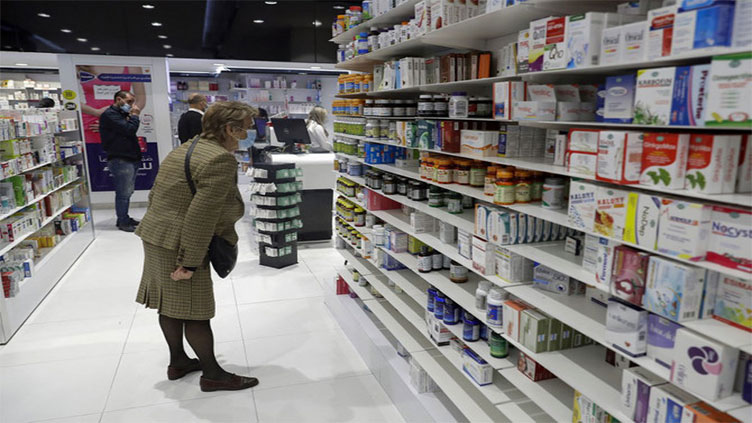Health crisis in Lebanon is 'catastrophic,' head of parliamentary committee warns

Business
Financial crisis is pushing people into poverty
(Web Desk) - “Funds allocated for purchasing medications for cancer, (other) chronic diseases and kidney dialysis are nearly depleted,” Bilal Abdullah, the head of Lebanon’s Parliamentary Health Committee said.
He warned that the health situation in the country “is catastrophic.”
His comments came as concerns grow about the rates of non-communicable chronic diseases in a country mired in a long-running financial crisis and political paralysis.
Cancer and heart and vascular diseases are among the leading causes of death in Lebanon, and Firas Abiad, the caretaker health minister, said that failure to provide early treatment of such conditions ultimately results in higher health care costs, which in turn increases mortality rates among people who lack the financial resources to afford treatment.
Abdullah warned that all government decisions currently being made in Lebanon “fall into the category of temporary solutions until the political situation is resolved and the economy recovers.”
As a result of the financial crisis, which began in 2019 and has resulted in the nation’s currency losing more than 90 percent of its value, many people have been pushed into poverty and are struggling to feed their families.
A number of state-funded subsidies on everyday goods and services have already been removed and in the latest attempt to save money, Lebanese authorities are planning to remove subsidies on bread within two or three months, economic expert Louis Hobeika told Arab News.
Lebanon obtained a $150-million loan from the World Bank to subsidize wheat but this support will end in February next year.
The cost of the current state subsidy on bread is between $15 million and $20 million a month, according to Hobeika, and the subsidies on many staple goods and services are being reduced month by month.
Meanwhile, for almost a year politicians have been unable to agree on the appointment a new president, and so the office has remained vacant since Michel Aoun’s term ended on Oct. 31, 2022, with little sign of the situation being resolved any time soon.
In the absence of any agreement between political factions on a plan to introduce reforms that might address the financial crisis and economic collapse, Lebanon’s caretaker government, headed by Najib Mikati, continues to follow seemingly random policies related to budgeting and expenditure.
In the process, it has been tapping into the nation’s diminishing financial reserves, in particular depositors’ funds held in the country’s central bank, and cash from whatever loans the government has been able to obtain.
Reformist MP Mark Daou said that Mikati’s government has spent millions of dollars without disclosing what happened to the funds, in violation of the principle of financial transparency.

